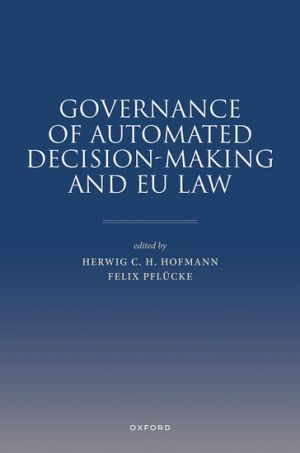
Governance of Automated Decision-Making and EU Law presents a comprehensive and nuanced exploration of the intricate relationship between technological innovation and democratic governance in Europe. Focused on preserving constitutional values within the European Union, the book rigorously examines the profound impact of information technologies on rule-making and decision-making processes. The dual objectives of the volume are to comprehensively explore the impact of innovative information technologies on the EU's public law and to devise future-proof regulatory strategies in the face of rapid technological advancements. Addressing the spread of information technology and automated decision-making processes across EU policy sectors, the work delves into potential risks to democratic principles and accountability standards. Advocating for a comprehensive approach, the volume integrates legal, policy, and technological considerations to establish accountability standards for automated decision-making systems.
Tailored for academics, researchers, and policymakers, Governance of Automated Decision-Making and EU Law provides a vital resource for understanding the complexities and opportunities associated with the digitalization of shared administration in the EU. It contributes significantly to the ongoing discourse on safeguarding constitutional values and principles of good governance in the digital era. The findings underscore the interconnectedness of information systems across EU-regulated policy areas and the risks posed by automated decision-making systems. Urging attention to transparency and accountability, the book addresses these concerns through eleven chapters, offering insights into normative requirements, administrative procedures, market regulation, digital health, borders and immigration, political advertising, interoperability framework, AI technology, and their intersection with legal principles.